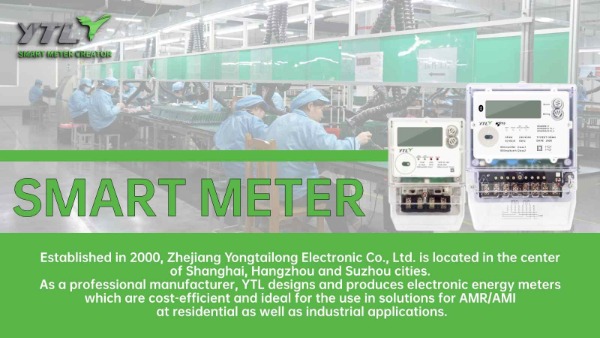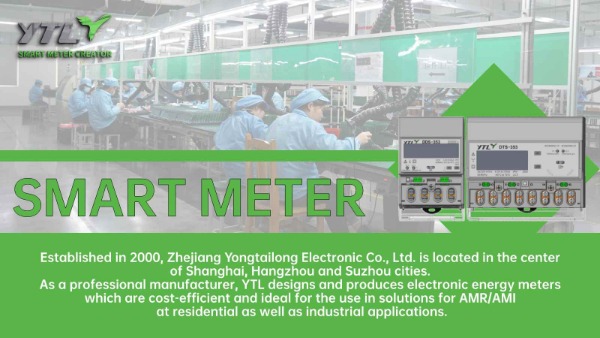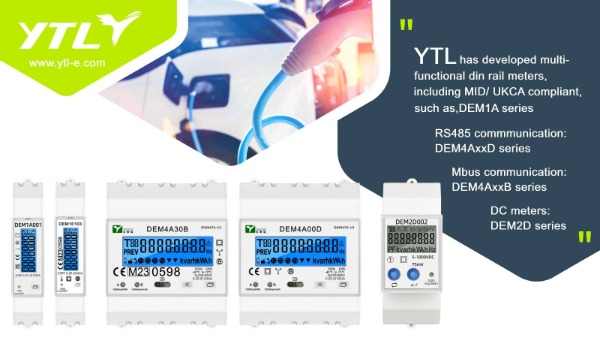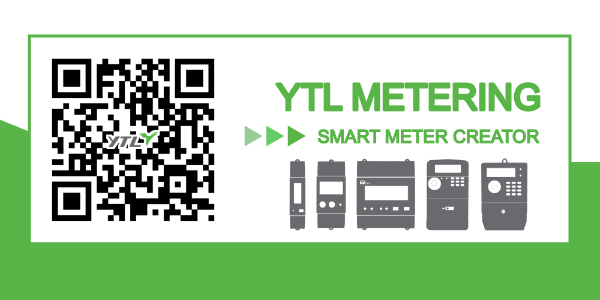What extended functionalities will smart energy meters have?
As the core component of modern energy management systems, smart energy meters have already brought significant changes and efficiency improvements in many aspects. However, with the rapid development of technology and continuous innovation, smart energy meters may potentially have disruptive functionalities in the future, which will completely change our understanding of electricity usage and management. The following will discuss some possible extended functionalities and their potential impacts.
 1. Predictive maintenance and fault warnings
1. Predictive maintenance and fault warnings
Traditional electrical meters primarily focus on the measurement and recording of electricity, while future smart energy meters may integrate more sensors and data analysis functions to achieve predictive maintenance and fault warning. By deploying a large number of smart energy meters in the electricity grid, the operational status of the grid can be monitored in real-time, potential faults and hazards can be promptly discovered, and maintenance and repairs can be conducted in advance. This predictive maintenance not only reduces the number and duration of power outages, improves the reliability and stability of the power grid, but also lowers operational costs and enhances operational efficiency.
2.Real-time energy management and optimization
smart energy meters can collect real-time electricity usage data and behavioral patterns of users. Through analysis and processing of these data, personalized energy management and optimization suggestions can be provided to users. For example, based on the user's electricity consumption habits and needs, smart energy meters can adjust the operating time and power of household appliances to achieve efficient energy utilization and savings. Additionally, smart energy meters can be integrated with smart home systems, electric vehicle charging stations, and other devices to achieve intelligent energy scheduling and optimization configuration.
This real-time energy management and optimization will help improve energy efficiency, reduce energy costs, and drive sustainable development.
 3.Based on big data value-added services
3.Based on big data value-added services
smart energy meters, as data collection and processing platforms, can provide users with a variety of value-added services. By mining and analyzing large amounts of electricity consumption data, users can be provided with services such as energy usage statistics, electricity consumption behavior analysis, energy consumption forecasting, and more. At the same time, this data can also be used to develop new business models and services, such as personalized energy consulting, energy trading platforms, energy financial services, etc.
These value-added services can not only enhance user's electricity experience and satisfaction, but also create new revenue streams and competitive advantages for the power companies.
4. Integration and Interaction of Energy Internet
With the rapid development of the energy internet, smart energy meters will become important bridges connecting users and the energy internet. smart energy meters can seamlessly interface and work together with renewable energy systems, energy storage systems, electric vehicle charging stations, and other devices, enabling the internet-based management and trading of energy.
Users can participate in the energy internet through smart energy meters, achieving energy sharing, trading, and optimized allocation. This integration and interaction will bring more choices and convenience to users, driving innovation and transformation in the energy industry.
5. Advanced metering and billing functions
smart energy meters can achieve advanced metering and billing functions, providing users with more accurate and flexible ways to calculate electricity costs. By monitoring users' electricity consumption and behavior in real-time, smart energy meters can provide personalized electricity billing options, such as peak-valley electricity pricing, or reward or penalty mechanisms based on electricity consumption behavior.
This advanced metering and billing function can motivate users to use electricity resources more rationally, improve the efficiency of electricity resource utilization and social welfare.
 6. Strengthening of security and privacy protection functions
6. Strengthening of security and privacy protection functions
With the widespread application of smart energy meters in the power system, security and privacy protection issues are becoming increasingly prominent. In the future, smart energy meters may adopt more advanced encryption technology and security mechanisms to ensure the safe and reliable transmission and storage of electricity data. At the same time, through the design of reasonable privacy protection mechanisms, such as differential privacy, federated learning and other technologies, users' electricity usage data can be protected from misuse or leakage, maintaining users' privacy rights.
smart energy meters are continuously introducing many extended functionalities that will profoundly change our perception of electricity usage and management. Through innovations and developments such as predictive maintenance and fault warnings, real-time energy management and optimization, value-added services based on big data, integration and interaction with the energy internet, advanced metering and billing functions, as well as the strengthening of security and privacy protection features, smart energy meters will bring more intelligent, efficient, and sustainable energy solutions to the electricity industry and society as a whole. The market demand for the extensibility and disruptive functionality of smart energy meters is driven by the efforts and collaboration of enterprises, research institutions, and various parties to collectively promote the development and widespread application of smart energy meter technology.

Comments
Post a Comment